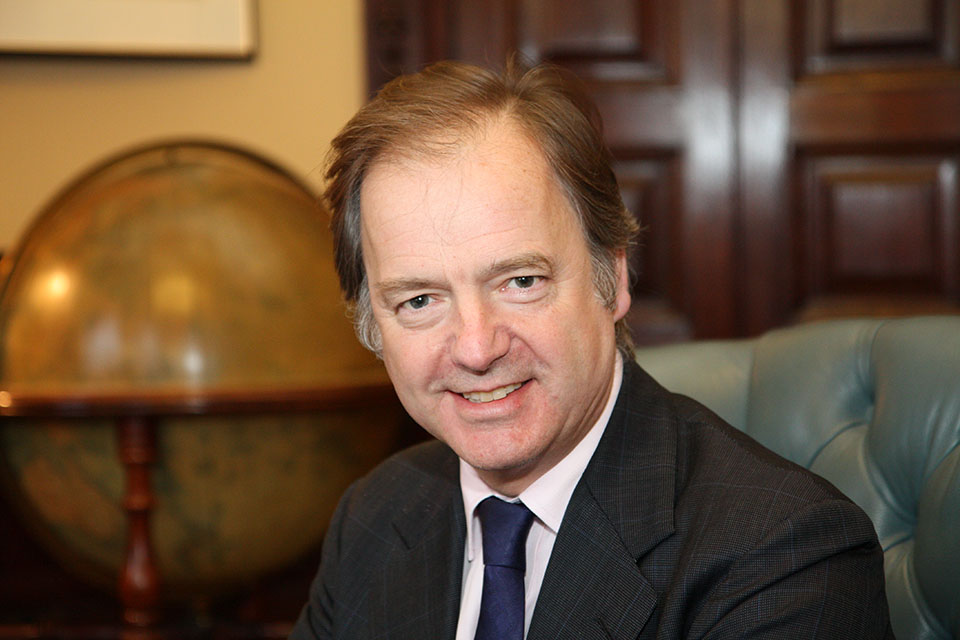The UK's approach to the Commonwealth
Minister Hugo Swire's comments at the Commonwealth Enterprise and Investment Council Infrastructure Summit

Speaking today, Mr Swire said:
I’m sure you’ll be aware of this Government’s commitment to the Commonwealth. We have – it is fair to say - been candid about the need for reform; but we have also unapologetically made the case for a vibrant Commonwealth in the 21st century.
Why? Well, some people like to see the Commonwealth in terms of its history. Clearly this is important – and only this year, we have commemorated the extraordinary contribution of today’s Commonwealth nations in the First World War at a special centenary service in Glasgow. It’s true that our shared history – and our shared role in defending the values of the free world in both World Wars – is the bedrock of the organisation.
However, we absolutely do not agree with those who argue that the Commonwealth is only about its history. We see enormous potential in its future, as an organisation which covers a third of the world’s population, and which represents an astonishing one billion people under the age of 25.
That is why we continue to invest so much in it. This year, we worked with the Scottish Government to host a magnificent Commonwealth Games in Glasgow. We have spent considerable time on less glamorous but nevertheless important work to ensure our institutions are fit for purpose: working with the Secretariat and with Malta as the next Chair-in-Office on important changes to streamline the Commonwealth Summitry, so we can get maximum value from it; and for the first time creating a new role of Commonwealth Envoy within the Foreign and Commonwealth Office, reporting to me as Minister, so that we are more closely engaged right across the huge agenda of Commonwealth business.
And we are also increasing our investment in Commonwealth trade – and that is why I am delighted that we have been able to support Lord Marland as he builds this exciting new organisation.
Trade goes right to the heart of what the Commonwealth should be about. We know – not least from the frenetic activity around the Commonwealth Games Business Conference this summer – that businesses from the Commonwealth like to trade within the Commonwealth. They see advantages to working within similar legal systems, with the same language, for customers with shared values.
So we are pushing at an open door. But we as Governments and as Commonwealth institutions need to do our bit to help facilitate this. I am by nature a free marketeer, and I understand the sighs and groans in the private sector where they see the dead hand of bureaucracy creeping into their lives. But I do think there are areas where we can and should help - in this case, by overcoming blockages to ensure that Commonwealth countries are able to build the infrastructure they need for businesses to thrive.
So how do we do it? Well, as you all know, building infrastructure needs political will, capital and expertise.
The political will is already self-evident. Many countries are developing national infrastructure plans, all setting out how infrastructure will drive economic development and local business.
Capital, to put it bluntly, is something that will require leadership from many of us in this room. It’s why Lord Marland has worked so hard to build the Commonwealth Enterprise and Investment Council in the last few months. So that Commonwealth businesses have a natural place where they can collaborate to find investment for the projects the Commonwealth needs.
Then there is expertise. When I meet Commonwealth leaders and officials from other organisations, I often ask them how the Commonwealth could best contribute to their work. High on their lists is usually technical assistance.
The Commonwealth family has such a wealth of relevant expertise - take, for example:
i. Britain’s largest upgrade in living memory of the world’s oldest industrial infrastructure; or
ii. India’s rapid growth and the new infrastructure challenges that brings; or
iii. Singapore’s expertise in urban infrastructure.
These skills and experiences can benefit all members of the Commonwealth. And there could be no better custodian for that knowledge then the Secretariat.
If we need a reason why we should step up, then I suggest we look no further than these statistics:
The Commonwealth is made up of:
i. A quarter of the world’s sovereign states;
ii. Around thirty percent of the world’s population;
iii. And twenty percent of the world’s landmass;
iv. But combined, just 14 percent of the world’s Gross Domestic Product.
That means there is tremendous room for growth. If we can unlock investment in infrastructure, it will power that growth right across the Commonwealth. And if we do, those who invest in the Commonwealth now will of course also stand to benefit in turn.
I am sure we will generate many ideas over the next two days - each with the potential to get a critically needed road or energy connection built.
But to get from ideas to seeing diggers in the ground, we will need leadership.
Leadership from the members of the Commonwealth Enterprise and Investment Council. Leadership from the Secretariat. Leadership from Commonwealth Governments.
Lord Marland. I have no doubt that you and the Council will provide that leadership in the run up to the Commonwealth Heads of Government meeting in 2015 and beyond.
And as you do, know that you have both my – and the British Government’s – full support.